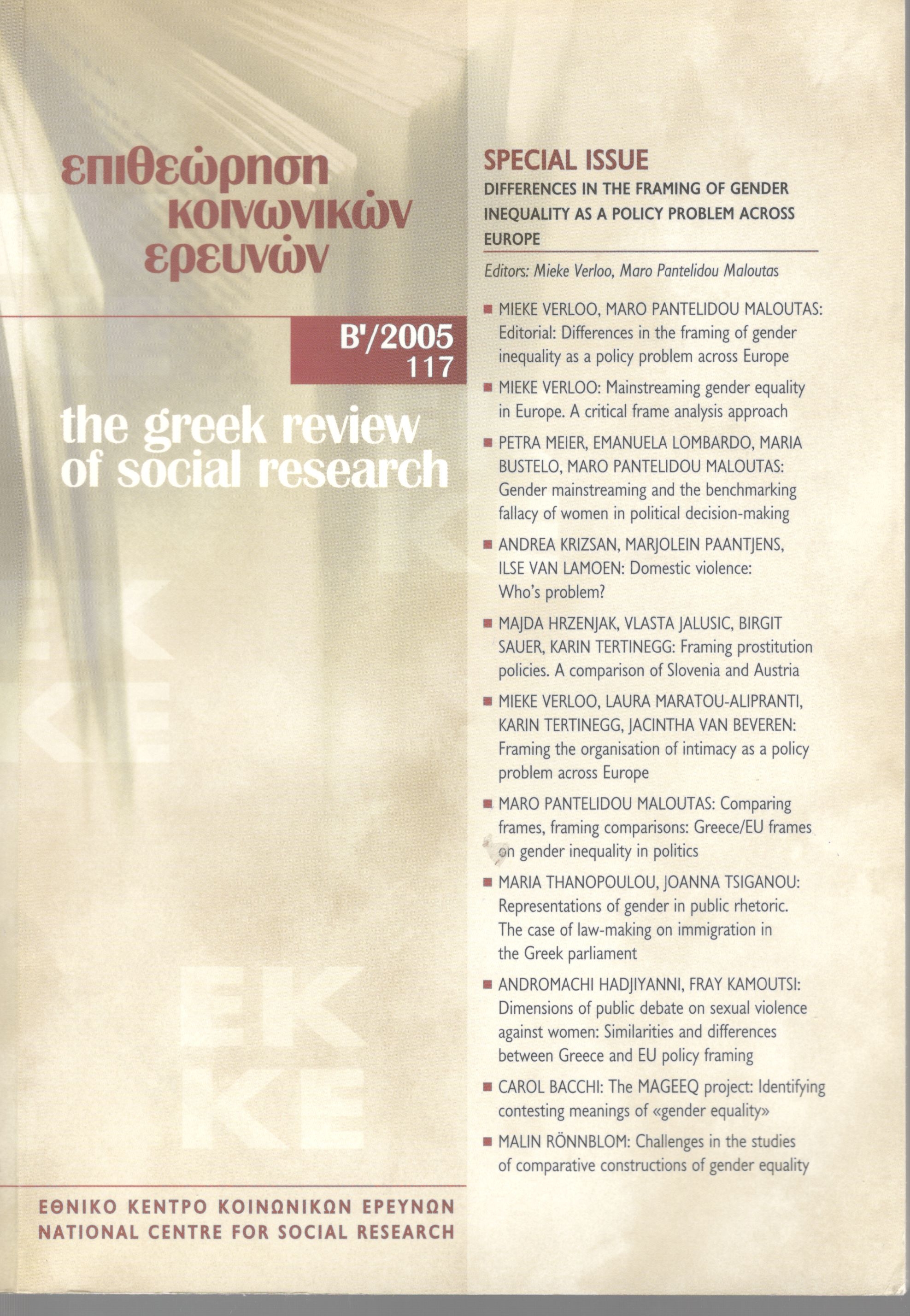Domestic violence: who's problem?
Abstract
This article juxtaposes shifts in prevailing frames on domestic violence in the Netherlands, Hungary and the EU. Domestic violence, first brought on the political agenda by women’s rights proponents as a problem related to gender inequalities, has been framed and re-framed under the influence of mainstream policy makers. The analysis of these frames shows how shifts in the gender of governance, particularly the marginalization of feminist NGO voices, have led to shifts in the governance of gender. These shifts caused a weakening or even disappearance of gender-equality considerations in domestic violence policies, or an integration of it in a broader framework thereby going beyond gender specific interests. The authors argue that strengthening government engagement on the issue of domestic violence goes hand in hand with a de-gendering in the articulation of the problem. This shift has taken away the privileged position of women’s rights proponents to speak out on the issue, and established the interests of other members of society to speak on it by affirming its cross-societal nature.
Article Details
- How to Cite
-
Krizsan, A., & Paantjens, M. (2016). Domestic violence: who’s problem?. The Greek Review of Social Research, 117, 63–92. https://doi.org/10.12681/grsr.9557
- Section
- Articles

This work is licensed under a Creative Commons Attribution-NonCommercial 4.0 International License.
Authors who publish with this journal agree to the following terms:
- Authors retain copyright and grant the journal right of first publication with the work simultaneously licensed under a Creative Commons Attribution Non-Commercial License that allows others to share the work with an acknowledgement of the work's authorship and initial publication in this journal.
- Authors are able to enter into separate, additional contractual arrangements for the non-exclusive distribution of the journal's published version of the work (e.g. post it to an institutional repository or publish it in a book), with an acknowledgement of its initial publication in this journal.
- Authors are permitted and encouraged to post their work online (preferably in institutional repositories or on their website) prior to and during the submission process, as it can lead to productive exchanges, as well as earlier and greater citation of published work (See The Effect of Open Access).



